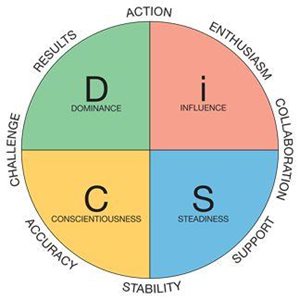Two common questions often arise in leadership workshops when it comes to staff motivation. “How do I work with an unmotivated person?” And, “How do I motivate someone to work harder?” One behavioural model suggests there is no such thing as an unmotivated person; everyone is motivated to do something. The same model implies that you can’t motivate someone else to work harder. What you can do is find what is important to them and what motivates them. Then, you can find ways to make sure they get more of that as a reward for high-level performance. In short, great leaders know what motivates others.
What motivates others?
To be able to drive someone to action, you need to understand what is motivating them. So, what motivates people to go work? Are they looking to develop a career or their skills as a professional? Are they saving money for a set goal? Or are they motivated by fear of not having a secure income? Ultimately, the reason people do things or do not do things is because of emotional drivers. It may seem like a sweeping generalisation, and of course, our emotional drivers are accompanied by logical drivers, but if leaders wish to be successful, they need to understand the “why” of their followers.
Emotional Drivers
Understanding the “why” of the people around you is far from an original thought. Dale Carnegie (author of How to Win Friends and Influence People) wrote the famous quote: “When dealing with people, let us remember we are not dealing with creatures of logic. We are dealing with creatures of emotion, creatures bustling with prejudices and motivated by pride and vanity.”

It would be nice to argue that we are creatures of logic. However, if we were creatures of logic, more people would be in better physical shape, fewer people would smoke, and fewer people would be in debt. But at the same time, nobody would ever bother to put themselves through the stress of climbing a mountain or enjoy a trip to the beach.
Motivational speaker Tony Robbins knows we aren’t creatures of logic. He often makes the point during his talks, that if information is all people needed to make decisions and act, then everyone would be successful. With Google and all the information we need to be successful at our fingertips, why don’t people act? Tony Robbins explains that it takes an emotional driver to kick-start them to make a decision.
Things Great Leaders Consider
Great leaders in the workplace consider the following to understand what motivates their staff and how to kick-start them into action:
-
Personal Lives
Knowing someone’s hobbies and what motivates them outside of working hours can be a great clue to what might motivate them to act in a certain way at work and achieve excellent results.
-
DISC Profiling
DISC profiling allows you to understand someone’s behavioural style, which is another great way to find out how to know their needs and desires. Once you understand somebody’s needs and wants, you have useful clues about what they might find positive behaviour.

-
Tasks Staff Like & Dislike
Remember when Grandma would let you have dessert after you finished all your Brussels sprouts? Grandma’s law is also used by successful business leaders to reward people for completing tasks they don’t like. For example, you can allow someone to do a job they love after accomplishing what they don’t want to do as a form of reward.
-
Positive Reinforcement
The odds are you’ve also experienced positive reinforcement. A classic example is when teachers hand out lollies or gold stars to students for completing homework or answering questions in class. This positive reinforcement involves reinforcing stimulus following a behaviour that makes it more likely the act will occur again in the future. When a favourable outcome, event, or reward occurs after an action, that particular response or behaviour is strengthened.
In conclusion, we know it’s not possible to directly motivate others. Instead, understanding the emotional drivers behind others behaviours is a great way to kick-start them into action. Great leaders won’t try to force others into work but will find out what motivates their team and use that as a form of reward for high-level performances.
At HTG, not only do our leadership team know what it takes to be a good leader, but multiple courses are also offered to ensure staff learning and development never ends. So, if you’re looking for a company driven by its strong culture and values, where you can continue to grow with ongoing staff learning and development, check out our current openings and see what HTG has to offer.
Anthony Dean
